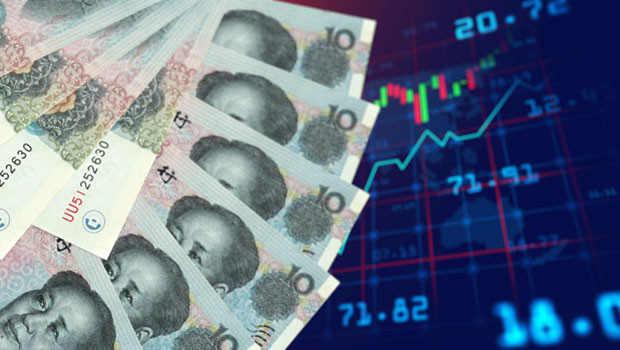
Source: Sharecast
US president Donald Trump indicated overnight that new tariffs on autos, semiconductors and pharmaceuticals could be implemented as soon as 2 April.
While details on whether the measures would target specific countries remained unclear, the uncertainty weighed on markets across the region.
Stephen Innes, managing partner at SPI Asset Management, noted that China held its benchmark lending rates steady as the People’s Bank of China went into “full-on defence mode” to protect financial stability amid a sharp acceleration in capital outflows.
“The yuan has been under siege, with foreign-exchange outflows surging last month as Trump’s tariff rhetoric sent shockwaves through markets.
“While a chunk of this outflow likely flowed through the Shanghai-Hong Kong connect, domestic banks still dumped a net $39.2bn in foreign currencies - the largest monthly bleed since July.”
Goldman Sachs put the real damage closer to $82bn, Innes noted, a tenfold explosion from December.
“If that doesn’t scream ‘capital flight’, I don’t know what does.
“No wonder the PBoC is holding the line.”
Markets in the red as Trump tariff fears reignite
Japan’s Nikkei 225 dropped 1.24% to 38,678.04, while the broader Topix index lost 1.18% to close at 2,734.60.
Auto-related stocks led declines, with Yokohama Rubber plunging 6.21%, Hino Motors down 5.68%, and Subaru losing 4.13%.
The possibility of tariffs on vehicles and auto parts hit sentiment, adding pressure to an industry already grappling with supply chain concerns.
In China, the Shanghai Composite was nearly flat, edging down 0.02% to 3,350.78, while the Shenzhen Component rose 0.2% to 10,794.54.
In Shanghai, Shenzhen Original Advanced Compounds plummeted 10%, Shanghai Vohringer Wood Product was down 9.45%, and Thinker Agricultural Machinery declined 7.82%.
Hong Kong’s Hang Seng Index dropped 1.6% to 22,576.98, weighed down by steep losses in technology stocks.
Kuaishou Technology fell 7.64%, Meituan lost 6.44%, and Lenovo Group slid 6.36%.
In South Korea, the Kospi 100 fell 0.67% to 2,654.45, with shipbuilding stocks suffering heavy losses.
Hyundai Heavy Industries tumbled 11.96%, HD Korea Shipbuilding & Offshore Engineering lost 9%, and Samsung Heavy Industries declined 7.74%.
Australia’s S&P/ASX 200 dropped 1.15% to 8,322.80, with losses concentrated in the industrial and retail sectors.
Redox fell 20.88%, Super Retail Group lost 12.48%, and Fortescue declined 6.22%.
New Zealand’s S&P/NZX 50 slipped 1.17% to 12,880.36.
Casino operator SkyCity Entertainment Group led losses with a 7.53% decline, followed by Westpac Banking Corporation, which fell 4.97%, and Synlait Milk, down 4.12%.
In currency markets, the dollar was last down 0.86% on the yen to trade at JPY 150.16, as it lost 0.55% against the Aussie to AUD 1.5676, and retreated 0.45% from the Kiwi, changing hands at NZD 1.7449.
Oil prices were mixed, with Brent crude futures last up 0.11% on ICE to $76.12 per barrel, while the NYMEX quote for West Texas Intermediate dipped 0.06% to $72.21.
Japanese bond yields reach new highs, PBoC stands pat on lending rates
Japanese government bond yields were on the agenda, after climbing to a new 15-year high on Thursday, with the 10-year yield rising to 1.434% and the five-year yield hovering around 1.07%.
The increase followed comments from Bank of Japan board member Hajime Takata, who indicated that interest rates might need to rise further to prevent excessive risk-taking and inflation.
On the mainland, the People’s Bank of China kept its key lending rates unchanged, prioritising financial stability over additional stimulus.
The one-year loan prime rate remained at 3.1%, while the five-year rate, which serves as a benchmark for mortgages, stayed at 3.6%.
Beijing’s decision aligned with market expectations.
South Korea’s wholesale inflation rate meanwhile held steady in January, rising 1.7% year-on-year, unchanged from December.
Data from the Bank of Korea showed that price increases were led by livestock products, coal and petroleum, as well as electricity, gas, water, and waste services.
Elsewhere, Australia reported stronger-than-expected job growth in January, adding 44,000 jobs compared to market forecasts of 20,000.
Despite the employment gains, the seasonally adjusted unemployment rate edged up to 4.1%, in line with expectations but higher than the previous month.
Reporting by Josh White for Sharecast.com.